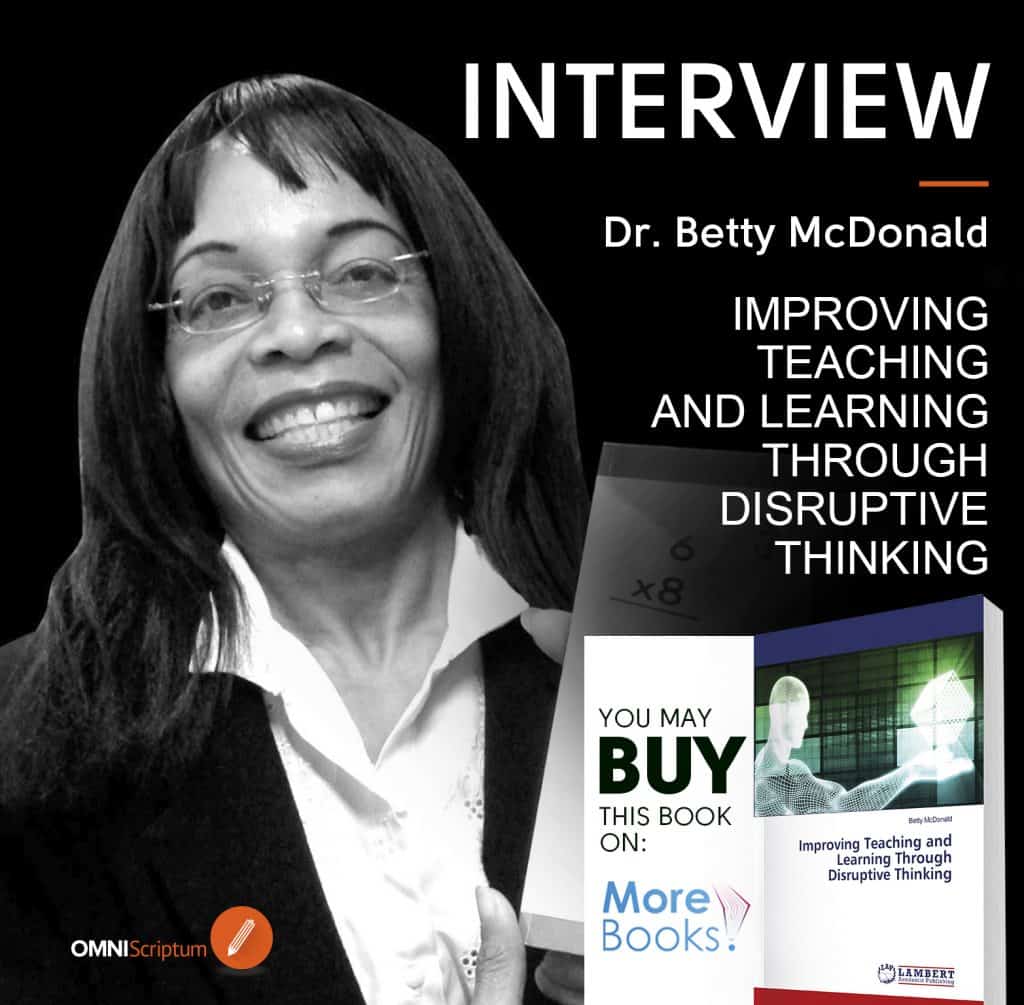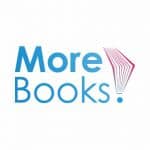An interview with dR. Betty McDonald
 Q: Dear Professor Betty Mc Donald, you are widely published academic author, with 20 books published by Lambert Academic Publishing. Who is your audience?
Q: Dear Professor Betty Mc Donald, you are widely published academic author, with 20 books published by Lambert Academic Publishing. Who is your audience?
A: Academics, practicing educators, policy makers, curriculum developers, researchers, childhood providers, practitioners, specialists, administrators, parents, guardians, anyone who wants to self improve, etc.
Q: Please, tell us about your research fields. Why did you choose to study this field of your interest? Was it your childhood dream job?
A: Yes! Ever since I was a child I knew that education was my area of passion. I took every opportunity to teach anyone and anything … I find a teachable lesson in just about everything I encounter. Usually what would normally be considered as throw-aways I see as valuable instructional aids. The passing years have confirmed my passion for education and research even after more than four decades. Because assessment is an integral part of the educational process I decided to choose this field. Additionally, I write numerous self help books that purposefully and deliberately steer learners towards their own self success. Some of those self help books include Success and The Self; Academic Cognitive Readiness; Taking Responsibility For Your Own Learning; Learning to Love and Loving to Learn Mathematics; Enjoying Mathematics in the Flipped Classroom; How to Hone Problem Solving Skills; How to Manage Mathematics Anxiety; etc.
Q: What are the goals and intentions you are trying to achieve in your career?
A: I continue to encourage educators to self actualize by pursuing an area that personally interests them and use that area of self interest to make a meaningful difference to teaching and learning. I recently authored among other manuscripts the Postgraduate Certificate in Tertiary Education (PGCTE) for credentialed professors of tertiary educational institutions who may originate from industry and/or have not had formal training in education.
Q: What inspired you to write your first book?
A: A LAP acquisition editor, unknown to me, was in search for publishable materials at my alma mater university. She called me one day indicating how impressed her editorial team was with my doctoral thesis. She then asked if I wanted to get it published. The rest is history! That was sufficient inspiration to continue writing. Additionally, I have found that writing actually makes me feel very happy, fulfilled and accomplished. Writing provides me with the wonderful opportunity to share my ongoing research work. Best of all, when I hear of the thousands of people who enjoy my books I feel even more inspired to write. This is only one of the many links where my books may be found online:
https://www.morebooks.de/gb/search?utf8=%E2%9C%93&q=betty+mcdonald+assessment
http://www.barnesandnoble.com/s/betty+mcdonald?fs=11312&_requestid=30947
https://www.amazon.de/s/ref=nb_sb_noss?__mk_de_DE=%C3%85M%C3%85%C5%BD%C3%95%C3%91&url=search-alias%3Daps&field-keywords=betty+mcdonald+assessment
Q: Who are the other scholars in your field and how does your work compare to theirs?
A: Researchers and practitioners in psychometrics and several other areas from around the world are the other scholars in my field. As a prolific writer, my work tends to focus on a wide variety of interesting topical teaching and learning issues, ranging from problem-based learning, project-based learning, service learning, flipped classroom, technical and vocational education, technology education, mathematics education, professional development, reflection, and assessment in its many forms: self, ipsative, portfolio, performance, peer, authentic, traditional, formative, summative, comparative, exceptional cases, reflective, online, etc. Additionally, I write a number of self help practical books that allow me to share my vast experience of more than four decades serving at various levels in the education system: K-12, primary, secondary, tertiary and beyond. I am truly proud of my work which includes training professors in pedagogical skills; designing assessment instruments (https://u.tt/index.php?tlc=1&page_key=428); supervising graduate students; managing the ongoing student evaluation of teaching; contributing to policy formation on teaching and learning; advising on learning spaces and proper usage of instructional aids.
Q: Can you share some stories about people you met while researching for your books?
A: Oh … I have met thousands of researchers from all five continents across the world. In addition to attending numerous international conferences I have the opportunity to serve as Visiting Professor at a different university every year. Among the many stories I can share I´ll tell you only this one, least I get totally carried away. I was sharing at a university in Alaska where I served as Visiting Professor. While discussing the process of reflection in improving teaching and learning, one person asked what happens if you choose to do the same ´thing´ even after reflection. That question prompted me to amend my reflection instrument that continues to help many individuals today.
Q: Who are some of your favorite authors that you feel were influential in your works? What impact have they had on your writing?
A: Desmond Broomes, John Enger, David Boud, Thomas Angelo, Dylan Wiliam, David Black, Borg & Gall. They truly motivate me and serve as a catalyst for generating innovative and creative ideas.
Q: What convinced you that Lambert Academic Publishing would be the right publisher for you? Have you been satisfied with the cooperation?
A: I have published with other well recognized publishers. I can tell you that LAP has a much faster turnaround time and their ways of operation appear to be extremely efficient. In fact, getting in contact with LAP while in Germany has more than strengthened my confidence in them.
Q: What are you working on currently? And if you decide to publish a new book, would you consider cooperating with us again?
A: Certainly! I am working on a number of books. Among them are Blended Learning For Success; Teaching Learning; Defensive Teaching in Mathematics; Teaching Thinking; Teaching For Success; Teaching For Affect; etc.
Q: What advice would you give to young academics?
A: Find your calling and go for it! If you could get lost in your world and allow time to fly by without even knowing it, then you have a sense that you are doing what you enjoy best.




